Previous Webinars
We understand that the school year brings new successes and challenges. California Association of Science Educators (CASE) wants to help you navigate through these times.
Registration Now Closed
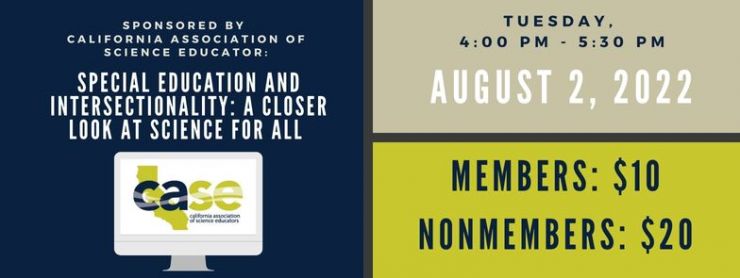
Student-centered science instruction can embrace the diversity and intersectionality of students with special needs. Create engaging instructional opportunities with accommodations and learn strategies for special education achievement in science.
- Explore the intersection of race, socioeconomic status and special education in the Science classroom
- Learn how to embrace the needs of students with special needs and use the 3D5E DO-KNOW-THINK Learning Sequence that allows teachers to create science-centered lessons for engagement, active learning, and interdisciplinary instruction;
- Understand the specific needs and accommodations necessary for students with special needs and walk away with a matrix of learning strategies that can be used to modify and differentiate your instruction for all students;
- Create a co-teaching model with action planning steps, questions to think about, and collaboration strategies between special education, general education, and parent communication.
Special Education and Intersectionality: A Closer Look At Science For All
Date: Tuesday, August 2, 2022
Time: 4:00 pm - 5:30 pm
Cost: Members: $10, Nonmembers: $20
REGISTRATION IS NOW CLOSED
SHORT COURSE: Getting Students to Ask Better Questions presented by Julia Cook and Jennifer Mutch
Date: Saturday, November 7, 2020 | Time: 9:00am-12:00pm
Asking students to generate questions seems easy, but are their questions complex enough to drive learning? Using cross-cutting concepts as a lens to ask questions about phenomena; the Question Formulation Technique (QFT), will support all students in critical-thinking and metacognition.
Grade level: 3-12
Emphasis: Classroom Management/Engagement, Crosscutting Concepts (CCCs), Science & Engineering Practices (SEPs)
Science: Chemistry, Climate, Earth/Space Science, Engineering, Environmental Science, Integrated Science (Bundled Across Domains), Life Science/Biology, Physical Science, Physics
REGISTRATION IS NOW CLOSED
SHORT COURSE: 5E NGSS Chemistry Full Year Curriculum (SFUSD) presented by Katrina Rotter
Date: Saturday, November 7, 2020 | Time: 1:00pm-4:00pm
SFUSD’s 5E curriculum for NGSS Chemistry embeds ESS standards (stars and climate change) alongside chemistry topics. Come learn about our process, experience activities from throughout the year, see our student and teacher books, and be given free access to the curriculum to use.
Grade level: 9-12
Emphasis: Climate, Disciplinary Core Ideas (DCIs), Pedagogy
Science: Chemistry, Climate, Earth/Space Science
Webinar: Integrating Science Learning & Language Acquisition: Creating Potential Opportunities for Multilingual Learner Achievement in the era of NGSS presented by Claudio Vargas
Date: Tuesday, September 29, 2020
Time: 3:00pm-4:30pm
Cost: Free for Members; $10 for Nonmembers
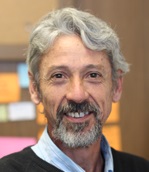
Language develops most powerfully when it is in the context of building knowledge and interacting with the world. The intersection of science and ELD instruction lands squarely in the NGSS science and engineering practices—in the doing of science. Students are also “doing language” by asking questions, planning investigations, developing models, constructing explanations, and engaging in argumentation. The equitable engagement in these practices supports the fundamental goal and principles of the CA ELD standards—using language in meaningful and relevant ways. This session will explore effective distance learning strategies that support this goal.
Language can best be understood as action, rather than “form” or “function” alone; students learn to do things with language when they are engaged in meaningful activities that engage and challenge them. ~Okhee Lee
Date: Wednesday, September 9, 2020
Time: 4:00pm-5:00pm
Webinar: Managing Stress & Building Resilience
We will explore how the brain processes sensory information in such a way that makes sense to educators. Then we will dive into what is happening to our brain’s processing power during traumatic experiences, such as where we are at right now with the COVID pandemic. Finally, we will share some resources that will help you to feel better, protect you, and build up your psychological resilience.
Resources:
- Fighting Stress (English)
- Fighting Stress (Spanish)
- Fighting Stress (Vietnamese)
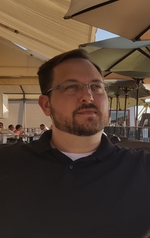
About Dr. Richard A. Woodruff, PhD
Dr. Woodruff has been researching and studying stress for more than 16 years. He was originally studying stress effects with a corporate lens, then moved into first responders: ICU nurses and law enforcement. Dr. Woodruff fell into education just over four years ago, and fell in love with helping kids and educators and has not looked back since. He has now adapted his research and workshops to better accommodate educators, students, and families. He still actively researches stress and techniques to help cope with stress, and also working on innovations for adult SEL and an advanced TIC model.
REGISTRATION IS NOW CLOSED
Date: Tuesday, August 4, 2020
Time: 3:00pm-4:30pm
Webinar: Effective Virtual Learning Field Trips
Field trips have always been a way to get students exposed to and engaged in science in tangible ways. Distance learning holds new opportunities for educators and students to be able to take field trips and learning outside of the classroom. Virtual field trips now allow educators to go beyond geographic limitations and develop high-quality education opportunities for students.
The California Association of Science Educators (CASE) is excited to be providing an informative and engaging webinar exploring the do’s and don'ts, as well as successes and challenges with virtual field trips. We will also explore offerings from a few of our science partners who provide platforms that solidify learning, agency, and connection through standards-based virtual field trips.
Teacher Panelists
Stuart Douglas is a Biology Teacher at Granger Junior High in National City, California. He has been teaching for more than 20 years and has spent the last 15 years at Granger Junior High. Stuart has earned degrees in Marine Sciences and a Master’s in Zoology through Miami University and San Diego ZooGlobal. He is passionate about Biology and Conservation and endeavors to teach his students about those subjects and more. He is a big believer in Field Trips and now has increasingly turned to Virtual Field Trips as a resource.
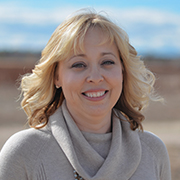
Kelly Garcia is a science and engineering teacher at Hutchinson Middle School in La Mirada, CA, and a master teacher for Project Lead The Way. She is known by her colleagues for creating opportunities for her students to learn, and ensuring that STEM education is part of the fabric of her community. As a result, Kelly has worked with organizations such as Snap the Gap, Cal Poly Pomona’s College of Engineers Femineers Program, and Verizon’s Innovative Learning Labs to bring opportunities for STEM Education to students throughout her district. In 2017, Kelly was awarded Project Lead the Way Gateway Teacher of the Year, and Woman of the Year for California 57th Assembly District.
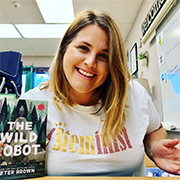
She believes that we can harness the power of technology to create collaborative problem solvers that communicate solutions to real world problems. She lives in Lodi with her toddler, husband, and two cats. Outside of teaching, it's not uncommon to find her in the mountains enjoying sweeping mountain views of the mighty Sierra Nevadas.
Program Partners - Panelists
California Academy of Sciences
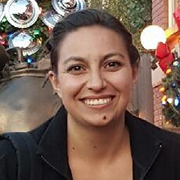
Jacque Benitez is an Education Specialist for the California Academy of Sciences’ distance learning program. She has been at the Academy in San Francisco, California since 2012. Starting as a planetarium presenter teaching student’s astronomy. In 2015, she then took the opportunity to reach students beyond the Bay Area in an innovative way through the Academy’s distance learning program. Since joining the education team, she has tripled its digital outreach and co-designed many of the existing programs offered today. Her mission for distance learning is that every K to 8th-grade student has the opportunity to explore, explain, and sustain life as a scientist.
NASA's Jet Propulsion Laboratory
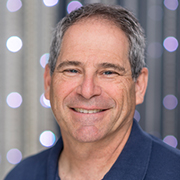
David Seidel, a Life Member of CASE, is manager of the Education Office at NASA’s Jet Propulsion Laboratory where he leads a team leveraging the intrinsic interest in NASA missions of discovery. He has been at JPL for thirty years and, prior to joining JPL, David taught high school science and ran a planetarium. David has received numerous group and individual achievement awards including the NASA Exceptional Service Medal, NASA Exceptional Public Service Medal, and the American Astronautical Society’s Sally Ride Excellence in Education Award.He was a member of the California Science Expert Panel for the Next Generation Science Standards. His hobbies include mountain biking and disaster amateur radio communications.
San Diego Zoo and Safari Park
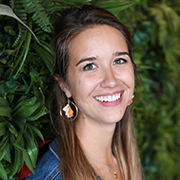
Emily Berglund
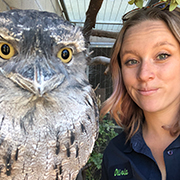
Olivia Drummond
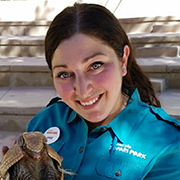
Jamie Feinstein
CASE offered a 4-part webinar series: Outdoor &
Environmental Literacy Learning. The over-arching goals of the webinar
series is to:
- Make the Case for Environmental Literacy
- Resolve Perceived Obstacles
- Support Teachers as they Implement Environmental Literacy Learning in the Real World
Webinar 1 – Registration CLOSED
February 19, 2020 | 3:30pm-4:30pm
Get Outside: How Can I Find the Funds for Outdoor Environmental Field Experiences?
Presenters: Jill Lytle, Santa Ana USD; Sasha Stallard, San Diego Zoo; Kyle Watson, Ecology Project International
Moderator: Kurt Holland
Many educators know the value of carefully planned outdoor field experiences that get their students doing and thinking in the manner of scientists and engineers. This is especially important when seeking to launch engaging phenomena driven 3D NGSS investigations, but finding the cash to make these experiences happen can be daunting and time consuming!
Join an experienced group of environmental literacy specialists and teacher-leaders as we guide you to a wealth of existing financial resources, easily accessible grants, and outline a longer-term process for building a culture of funded outdoor field experiences at your school.
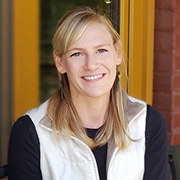
Kyle Watson is the Admissions Director for Ecology Project International, a non-profit that empowers young people to take an active role in community-based conservation. EPI works through local program
offices to connect students to authentic research opportunities in Yellowstone National Park, the Galapagos Islands, Mexico, Costa Rica, and Belize. Prior to earning her master's degree in environmental
education, Kyle worked as the Operations Director of Forfar Field Station on Andros Island, Bahamas. She's passionate about fostering a sense of place in youth and providing accessible, transformative outdoor
learning opportunities.
Webinar 2 - Registration CLOSED
March 25, 2020 | 3:30pm-4:30pm
Get
Integrated: How Can I Make the Time for Environmental Learning as
Celebrated by NGSS and Foregrounded by the California Science Framework?
Presenters: Beth Callaghan; Alejandra Santini, Santa Monica Alternative School House (SMASH); Robyn Stone, Science & Technology Outreach Foundation
Moderator: Kurt Holland
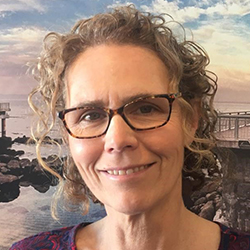
Beth Callaghan develops teacher professional development programs for the Monterey Bay Aquarium’s Education Division. After earning Master's degrees in biological sciences from Smith College and science education from Duke University, Beth taught a variety of high school science courses and provided professional development for science teachers of at-risk and incarcerated youth in Massachusetts. Since moving to the Monterey Bay Aquarium’s Education Division eight years ago, Beth has worked with a highly collaborative team to incorporate the building of environmental identity and environmental literacy into Aquarium programs. As part of their work to incorporate culturally responsive teaching and developing and empowering a diverse group of young leaders who are inspired, science literate, confident and ready to act as agents of ocean conservation, she recently launched a year-long Climate Action Projects Summit for classroom and informal educators who work with youth in Grades 6-12. Her passion for field work and getting students outside is equaled only by her passion for making the science process engaging, relevant and accessible to all.
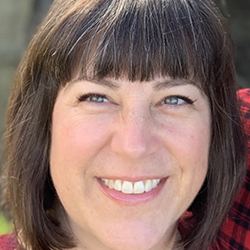
Alejandra Santini is a multiage teacher at Santa Monica Alternative School House (SMASH), currently teaching K-1-2. Her experience expands more than 25 years including teaching and leadership in settings from early childhood to graduate school. Alejandra has a MEd from UCLA. Her mission is to promote an image of children as “competent, active, critical, producers of culture, values, and rights, competent in living and learning” (Carlina Rinaldi). This image of children guides her to find and refine best practices. Throughout her career she has found that project based education, focused on the processes of the mind and on seeking depth of understanding, is pedagogically aligned with her image of children.
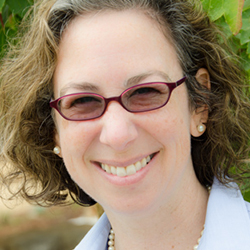
Robyn Stone is the STEM Education Programs Manager for Synopsys Science & Technology Outreach Foundation. Additionally, Robyn is an adjunct faculty instructor for UCSC Silicon Valley Extension. She has been presenting courses and workshops in engineering, environmental education, inquiry-based science, and mathematics to educators at regional and national conferences for over a decade. Robyn also serves the San Mateo Environmental Literacy Collaborative as an instructional coach. Previously, Robyn was STEM Specialist and Sustainability Coordinator for The Harker School in San Jose. An elementary school classroom teacher and science specialist for 13 years, Robyn holds a Master of Arts in Teaching from University of San Francisco. She has National Geographic Educator Certification and holds both the Administrative Services and Multiple Subject Teaching Credentials issued by the State of California.
Webinar 3 - Registration CLOSED
April 22, 2020 | 3:30pm-4:30pm
Get
Connected: How Can I Find Classroom Ready Tools & Partners for
Environmental Literacy Learning that Support NGSS Learning?
Presenters: Brian Brown, Project WET; Jedda Foreman, Lawrence Hall of Science, UC Berkeley; Amity Sandage, Santa Cruz COE
Moderator: Kurt Holland
Every teacher can support outdoor and environmental learning with their classes. In fact, this strategy is highlighted in California’s Science Framework. However, often it is nice to have a program to use and partners to support teacher capacity building! In this session, environmental learning leaders will connect you to three networks that will, in turn, support your efforts to get outside and do culturally relevant 3D learning in the field. Additionally, we shall look at the prominence that outdoor learning has in California education policy, before concluding with a brief review of the health and academic benefits of outdoor learning experiences.
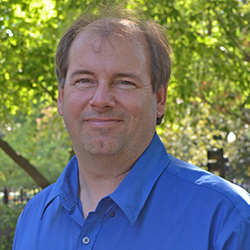
Brian Brown
Before joining the California Project WET program at the Water Education Foundation, Brian taught students at residential outdoor science schools around the state for 14 years, after a brief stint as an Eighth Grade U.S. History teacher. His tenure teaching outdoor science included 10 years preparing college students as environmental educators and teacher credential program candidates and involved wearing a number of hats that included wildlife wrangler, forest fuel reduction and trail engineering crew leader (i.e., camp logger) and compost pyromaniac.
Brian has also worked with the Society of American Foresters as an education specialist for the past 25 years and is a Facilitator for the Project WET sister programs - Project Learning Tree and Project WILD.He holds California Professional Clear K-12 credentials in Multiple Subjects, Single Subjects Life Science and Single Subjects Social Sciences, a Bachelor of Science in Forestry and a Bachelor of Arts in Social Sciences from Humboldt State University.
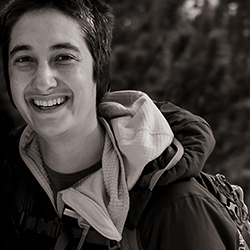
Jedda Foreman
Jedda Foreman is the Director of Environmental Literacy Projects at the Lawrence Hall of Science, UC Berkeley, which includes co-leading the Working Towards Equitable Organizations workshop series, liaisoning with school districts to support science and environmental literacy with the BaySci project, and co-leading the BEETLES project. In these roles, Jedda works with school and county superintendents and administrators, executive directors, teachers, principals, communities of practice, and researchers and evaluators, across a variety of formal and informal environmental education contexts.
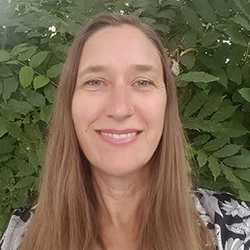
Amity Sandage
Amity Sandage is Environmental Literacy Coordinator for Santa Cruz County Office of Education, leading a countywide effort to build environmental literacy of all students in the community. Amity works to increase K-12 student access to experiential, field-based environmental education and to support teachers in using local environmental connections that add civic engagement and relevance to core instruction.
Webinar 4 - Registration CLOSED
May 20, 2020 | 3:30pm-4:30pm
Get Place-Based: Motivate and Engage Learners-Harvest and Use Local Phenomena
Presenter: Crystal Howe, Environmental Literacy Coordinator for San Diego County Office of Education
Moderator: Kurt Holland
Join us as we journey from defining phenomena to launching environmental learning activity with California’s master of phenomena, Crystal Howe. Crystal is an experienced classroom science educator, currently a science coordinator for San Diego COE, and brings an environmental literacy lens to all of her work as a statewide leader in NGSS education. Crystal will help teachers, and their allies, find relevant place-based environmental phenomena that, in turn, engages and motivates students to act on local environmental issues. Come prepared to ask questions, think, and participate in this lively and significant conversation.
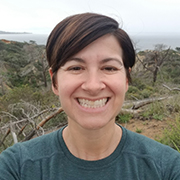
Crystal Howe, San Diego COE
Crystal Howe has been a science educator in San Diego for 18 years. After 14 years teaching high school science, she learned that our students need a greater understanding of their connection to the natural world. As the Environmental Literacy Coordinator, for San Diego County Office of Education, Crystal’s focus is to support teacher to use an environmental lens to inspire kids across the content areas and grades. Much of her time is spent working with teacher, informal educators, and science experts to identify local environmental phenomena for use in the classroom.
